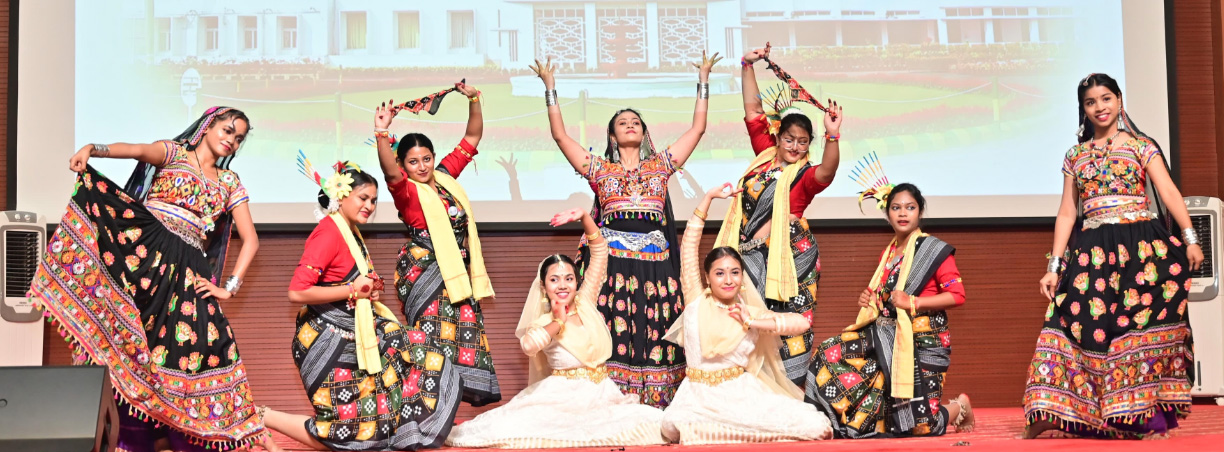Bhubaneswar: The State of Odisha on 14 April vibrantly celebrated the Odia New Year, also known as Pana Sankranti or Maha Bishuba Sankranti, marking the beginning of the traditional solar year in the Odia calendar.
Across the State, people embraced the auspicious day with deep devotion, age-old rituals, and a palpable sense of community spirit.
The spirit of the festival was further amplified by the exchange of heartfelt greetings. President Droupadi Murmu, Prime Minister Narendra Modi, Governor Haribabu Kambhampati and Chief Minister Mohan Charan Majhi extended their best wishes to the people of Odisha on this auspicious occasion. Social media platforms were flooded with New Year greetings and festive cheer, connecting Odias across the globe.
The day commenced with devotees thronging temples from the early hours, seeking blessings for a prosperous and peaceful year ahead. Major temples, including the revered Shree Jagannath Temple in Puri, the Lord Lingaraj Temple in Bhubaneswar, and various Shakti and Hanuman temples, witnessed a significant influx of devotees offering prayers and participating in special rituals.
Many devotees also took ritualistic dips in holy rivers and pilgrimage sites, symbolizing purification and the ushering in of new beginnings.
Pana Sankranti, which falls on the first day of the traditional solar month of Mesha (equivalent to the lunar month of Baisakha), holds immense cultural and religious significance for the people of Odisha. It marks the solar transition of the Sun into the Aries zodiac sign, signifying new beginnings, renewed energy, and the start of a new agricultural cycle.
The new Odia almanac, or Panjika, is released on this day. It serves as the guiding calendar for the year, detailing auspicious timings, festivals, fasts, and astrological predictions.
Special reverence is paid to Lord Hanuman, whose birth is traditionally observed on this day in Odisha. Temples dedicated to Lord Hanuman saw large gatherings with devotees offering prayers for strength and protection. Lord Shiva and Surya (the Sun god) are also worshipped.
The festival gets its name from ‘Pana’, a traditional sweet and refreshing drink prepared with ingredients like bael (wood apple), jaggery or sugar, yogurt, and seasonal fruits, often spiced with black pepper and cardamom. This drink is not only a symbol of the New Year’s joy but also provides relief from the escalating summer heat.
It is customary to prepare Pana at home, offer it to the deities, and share it with family, friends, neighbors, and even passersby. Youth groups were seen setting up roadside stalls to distribute Pana to the public, highlighting the spirit of sharing and community.
A unique and symbolic ritual observed on this day is the Basundhara Theki. An earthen pot filled with water and with a small hole at the bottom is placed above a Tulsi (holy basil) plant, allowing water to drip continuously onto the plant. This practice symbolizes the flow of life, prosperity, and the crucial need to conserve water, especially during the summer months.
In many parts of Odisha, particularly in rural areas, traditional folk dances and music performances are organized to mark the occasion. The DandaNata, a rigorous and ancient form of performance art involving physical endurance and devotion, often commences around this time. Other folk traditions like Pala and Daskathia are also prevalent. In Puri, a vibrant tradition involves wrestlers from traditional gymnasiums (Akhadas) demonstrating their skills after seeking the blessings of Lord Hanuman.
The celebration of Pana Sankranti underscores Odisha’s rich cultural heritage, its deep-rooted traditions, and the strong sense of community that binds its people. As the state steps into the new solar year, the festivities serve as a reminder of the importance of renewal, gratitude, and harmonious living with nature. The eco-friendly aspects of the festival, such as the use of earthen pots and natural ingredients for the Pana, further highlight the sustainable values embedded in Odia culture.
The vibrant celebrations across Odisha today not only marked the beginning of a New Year but also reaffirmed the enduring spirit and traditions of the Odia people.


